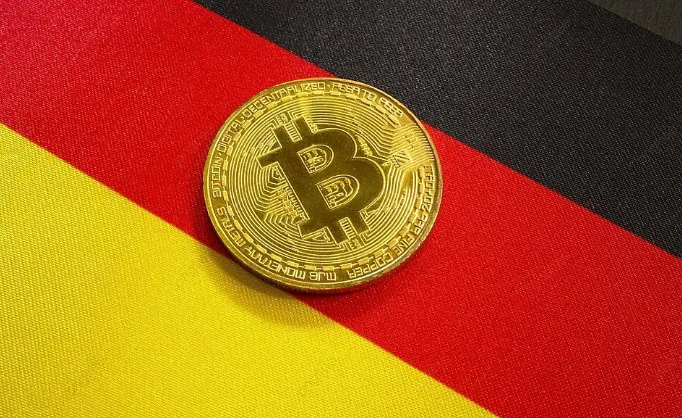Cointelegraph posted to X on June 25th that the German government could very well be in process of selling more of their Bitcoin.
Blockchain analysis tools have revealed that they transferred 400 Bitcoins to exchanges Coinbase and Kraken, and another 500 to an unknown wallet.

This comes nearly a week after the same wallet address transferred 6,500 Bitcoin to another set of addresses, including Bitstamp and Kraken, increasing worry that the German government may start dumping a ton of Bitcoin on the market.
According to Arkham, the blockchain analytics platform tracking these transactions, the German government now holds just over 45 thousand Bitcoin.
These recent transfers begs the question, what is the German government's strategy when it comes to their Bitcoin holdings? At this point, they would appear to lean more towards selling than accumulating.
I resonated with a comment left by LUCIE on X, who essentially said that nations which embrace crypto will fare far better than those who dismiss it.
https://x.com/LucieSHIB/status/1805539471896486251
Contrast Germany's decision to that of the small Central American nation state of El Salvador, which has deliberately been accumulating a long-term stash of Bitcoin, and has committed itself to buying a Bitcoin every single day since November 2022 (when Bitcoin was worth about $16,000).
https://x.com/nayibbukele/status/1593113857261965312
Unlike the Bitcoin that El Salvador has collected, the Bitcoin that the German government owns was confiscated from a film piracy website back in 2013. In other words, they didn't have any conviction in Bitcoin, but rather just fell into it.
Who Actually Owns It?
According to Arkham's website, or El Salvador's Bitcoin tracker, you might think that it's literally the government who owns this Bitcoin. In other words, the citizenry of a country are the rightful owners. But who actually has control of the funds?
Ultimately, an individual needs to hold the private key, which gives them to ability to spend the Bitcoin. More likely, a large nation's crypto stash is controlled by a small group of people via a multi-sig wallet, which would require multiple digital signatures to make a successful transaction.
Transparency
Ultimately, local governments that adopt cryptocurrency will be more accountable to their citizenry.
In traditional finance, the government sends and receives funds through an opaque banking system, which the public has no visibility into.

However, in the case of a cryptocurrency wallet, anyone can see when it sends or receives money, and the recipient can often be identified.
Isn't this how it should be? Governments should be held accountable for the funds they take from the public and spend on public goods.
Crypto-friendly Jurisdictions Win
While some regions are continuing to accumulate cryptocurrency, others are opting to offload it. The states, regions and cities that opt for crypto adoption will fair far better economically than those who choose to reject it.
If you learned something new from this article, be sure to check out my other posts on crypto and finance here on the HIVE blockchain. You can also follow me on InLeo for more frequent updates.
Until next time...
Resources
Cointelegraph Article [1]
Second Cointelegraph Article [2]
Bitcoin German Flag Image [3]
Digital Investigation Image [4]